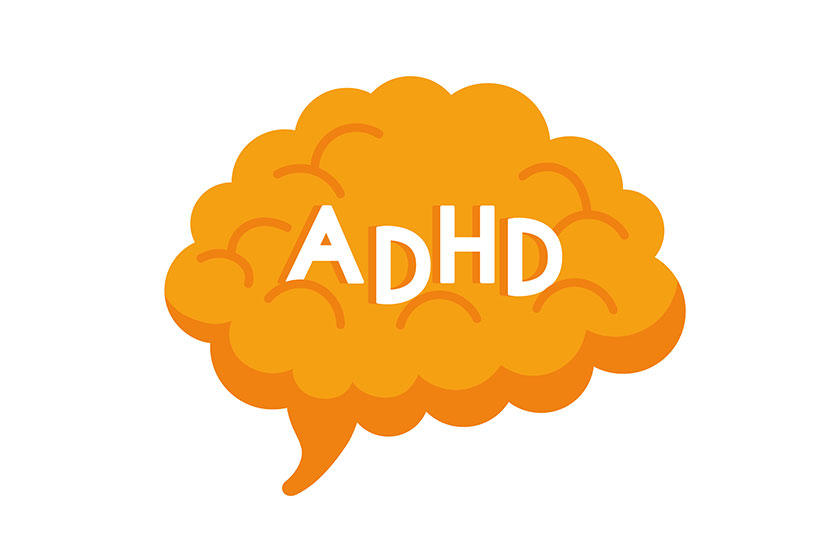As those in their golden years embrace retirement and senior living, it’s important to recognize that aging doesn’t exempt anyone from the challenges of Attention Deficit Hyperactivity Disorder (ADHD). Recent research sheds light on the fact that a significant number of residents aged 60 and older may be grappling with undiagnosed ADHD, and its impact can be more profound than we might think.
Late Diagnosis: The Surprising Reality
Dr. David Goodman, an assistant professor of psychiatry and behavioral sciences at the Johns Hopkins University School of Medicine, reveals a startling statistic: 100 percent of adults over 60 with ADHD were never diagnosed as children. This late diagnosis is primarily due to historical unawareness, as clinicians didn’t typically screen for ADHD in childhood half a century ago. This means that many of our loved ones may have carried ADHD into their golden years without knowing it.
Classic Symptoms Persist
ADHD, a neuropsychiatric disorder, doesn’t fade with age; it endures throughout one’s lifetime. Its classic symptoms, such as hyperactivity, distractibility, and executive function challenges, are enduring hallmarks that persist even as residents transition into senior living. These symptoms, although often associated with childhood, can profoundly affect the lives of those in their golden years.
Hyperactivity, typically characterized by restlessness and an inability to sit still, might manifest differently in older adults. Instead of climbing trees or running around, restlessness might manifest as an inner agitation, an incessant need to keep moving, or a difficulty in staying focused on a single task. Such restlessness can disrupt the peace and tranquility that many seek in their senior living environments.
Distractibility remains an ever-present challenge, often making it difficult for residents to concentrate on important tasks or enjoy leisure activities fully. This can lead to frustration and a sense of unfulfillment during what should be a time of relaxation and enjoyment.
Moreover, executive function difficulties, including time management and impulse control, can impact daily routines and overall quality of life. Tasks that once seemed simple may become daunting, and impulsive decisions may lead to unnecessary stress or complications. Understanding that these classic symptoms persist in those in their golden years is the first step toward providing appropriate support and care in senior living communities. By acknowledging these enduring challenges, we can work together to create an environment where residents with ADHD can thrive and enjoy their retirement years to the fullest.
Estrogen’s Role in ADHD
The role of estrogen in ADHD becomes particularly significant as women transition into perimenopause and menopause. During this phase of life, a noticeable decline in estrogen levels occurs, which can exacerbate ADHD symptoms. Psychologist Kathleen Nadeau highlights that diminishing estrogen levels can have a direct impact on cognitive functions, including short-term memory and the ability to focus. Perhaps most notably, it contributes to the widely recognized “brain fog” often associated with menopause, where individuals experience mental haziness and difficulty concentrating.
This unique hormonal connection underscores the importance of recognizing and addressing ADHD symptoms in those in their golden years. Understanding how hormonal fluctuations can influence cognitive function is vital for providing appropriate care and support to residents in senior living. By acknowledging the interplay between estrogen and ADHD, we can better tailor interventions and strategies to help individuals navigate these challenging aspects of their golden years with greater clarity and well-being.
Gender Disparity in Medication Response
Interestingly, the impact of hormonal changes on ADHD medication response seems to affect women more significantly. Dr. Bill Dodson, a Denver psychiatrist specializing in adults with ADHD, points out that male hormones like testosterone do not appear to influence ADHD impairments or medication efficacy in males. This gender-specific aspect highlights the complexity of managing ADHD in senior living scenarios.
The Overlooked Connection to Cognitive Decline
One alarming trend is the underdiagnosis of ADHD in older adults with cognitive complaints. Memory disorder clinics, for instance, actively screen for ADHD in only 1 in 5 cases. Dr. Goodman emphasizes that some individuals may have had ADHD their entire lives and are now facing dementia, creating a dual challenge for cognitive function. Recognizing this connection is crucial for providing appropriate care in senior living.
Screening and Management
Dr. Goodman recommends that menopausal women experiencing cognitive decline should undergo screening for ADHD, even if they’ve never been diagnosed with the disorder. Positive test results open up various avenues for management, including behavioral strategies, counseling, and medication. However, prescribing traditional ADHD stimulants, like Adderall and Ritalin, to older individuals can be a contentious issue due to concerns about cardiovascular risks. Monitoring by a physician is essential, and ongoing research is needed to understand the long-term effects better.
Exploring Hormone Replacement Therapy
Before increasing the dosage of ADHD stimulants, consulting a gynecologist about a three-month trial of hormone replacement therapy is a viable option. Research has indicated that hormone replacement therapy can have a positive impact on cognitive function. While earlier concerns about its safety have been addressed, the risks associated with plummeting estrogen levels are well-established.
Managing ADHD Symptoms
Beyond medical interventions, it’s important to recognize that cognitive decline in the golden years can result from various sources, including stress. Residents in assisted living communities often face unique challenges, and ADHD can exacerbate them. Overcommitment is a common trait among individuals with ADHD, which can lead to dropping responsibilities and increased stress. Simplification, support from an ADHD coach, or involvement in support groups like CHADD can be valuable strategies.
Understanding ADHD in those in their golden years is crucial for promoting a higher quality of life during senior living. Whether it’s recognizing late-diagnosed ADHD, addressing the gender-specific impact of hormonal changes, or considering hormone replacement therapy, there are options to manage and alleviate symptoms. If you or your loved ones are navigating senior living and facing ADHD-related challenges, consider exploring solutions at SummerHouse Bay Cove. Together, we can ensure that the golden years truly shine.







